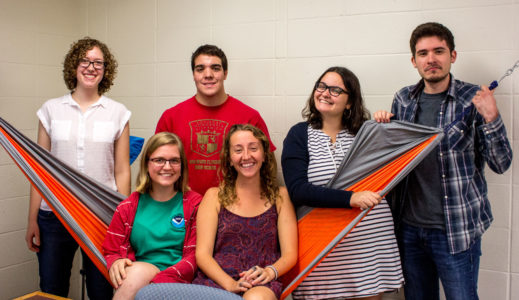
This marks the first year that Student Educational Policy Committee (SEPC) members have been required to attend implicit bias trainings with Lakesia Johnson, Chief Diversity Officer of the College.
Implicit biases are present everywhere, especially in academic environments. Although people acting according to their implicit biases do not necessarily intend to stereotype or favor those of a certain standing, their unconscious judgements can have consequences, according to Toby Baratta ’17, SGA diversity and outreach coordinator.
“Women in computer science for instance,” Baratta said, referring to an area of academics where implicit biases are very obvious. “It’s been a male-dominated field so there are oftentimes biases of, where is this woman coming from? How did you get there?”
According to Baratta, studies have shown that implicit biases often come out in studies when many people associate certain traits, like empowerment and leadership, with white men.
“[These studies] have shown that learning you have these biases is the best way of coming forward and addressing them because it’s not intentional,” Baratta said. “It’s more, [having] racist beliefs because of how someone was raised. How [does someone] move past them and recognize that’s what these beliefs are.”
Last year, the SGA Vice President of Academic Affairs (VPAA) Emma Lange ’16 started working toward creating a codified language for SEPCs. The various SEPCs run differently, but because they sit on hiring committees and are such leaders for the community, they need more language that is applicable to all departments.
“The extent of it is really acknowledging the way we have these implicit biases, so it’s … training to prevent it based off an awareness,” said Rachel Aaronson ’17, SGA VPAA. “[It’s was in part to] create a language that stated explicitly the role of SEPCs in the hiring practice.”
To address both of these concepts, implicit bias presentations are in the process of being given to all members of SEPCs.
“Effectively, everyone comes forward with their own bucket of biases and you’re trying to unpack that,” Baratta said. “No one wants to admit they’re a racist, but sometimes you are a racist, even if it’s the most well-intentioned racist there is.”
Although hopefully many groups on campus will begin to go through implicit bias training, SEPCs are an important group to get these concepts to first.
“For SEPCs in particular, it’s because they’re seen as leaders in their field in this community already. The other students look up to them and come to them with questions and advice, and those students need to be aware of their own perceptions and their own biases,” Baratta said.
The training itself is a succinct couple of hours, but it is packed with lots of information. It includes a PowerPoint, a video of psychologists explaining what implicit bias is and a short discussion.
Benson brought up that in a class within the English department, implicit bias would not explicitly be taught, even if it is an important underlying aspect.
“The major point of the video was that implicit bias is this pervasive thing, and that it’s reinforced by how American society has unfortunately been structured and [by] its institutions and its governmental framework, so implicit bias isn’t a topic that is addressed in a lot of departments,” said English SEPC member Jenkin Benson ’17. “It was good I was re-exposed to that concept.”
Aaronson is hopeful that these trainings will have an effect on SEPCs, even though in terms of hiring more diverse faculty, they are not involved in the screening process.
“Formalizing elements for SECPs [will] give them tools in a more formal way consistent across departments. [There will] be questions to be asking, types of things to be looking for,” Aaronson said. “It will provide a degree of standardization, certainly in expectations of reports written up, about new hires.”
According to Aaronson, the College is “moving in the direction that’s it’s committed to ensuring diversity [among] faculty.” Because SEPCs have a role in hiring candidates brought to campus, moving in the direction of being as objective as possible could help achieve that goal.
“I think it was good to remind people when you are dealing with these candidates, try and will yourself to be more objective,” Benson said. “Grinnell thinks it’s inherently an intersectional and fair place, but you still need to check yourself.”






















































